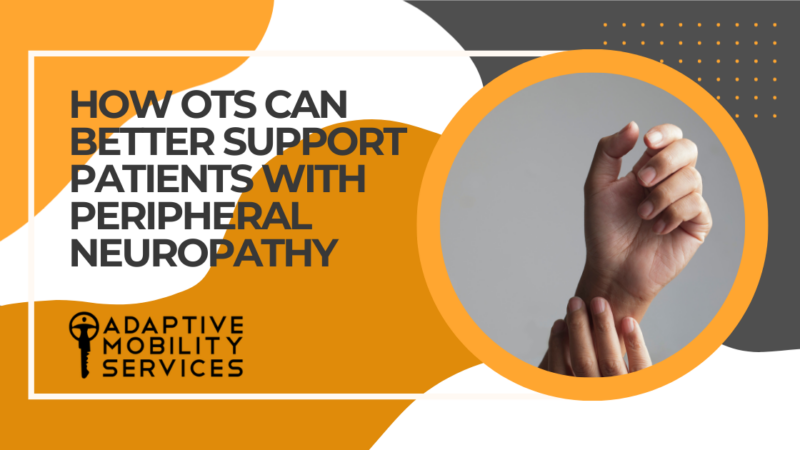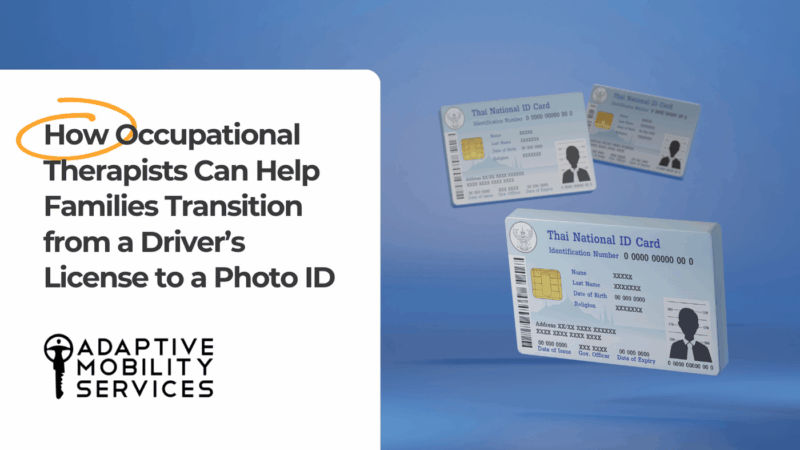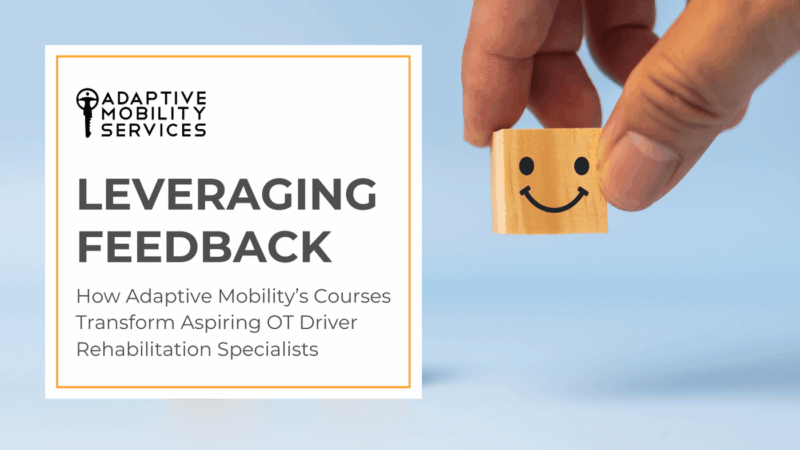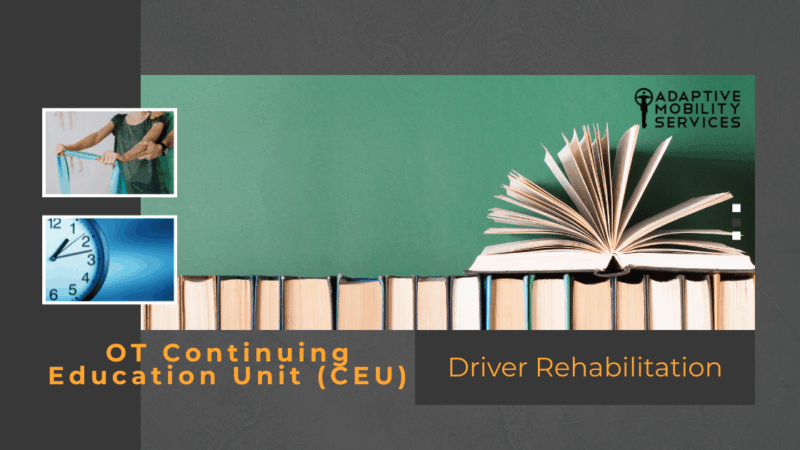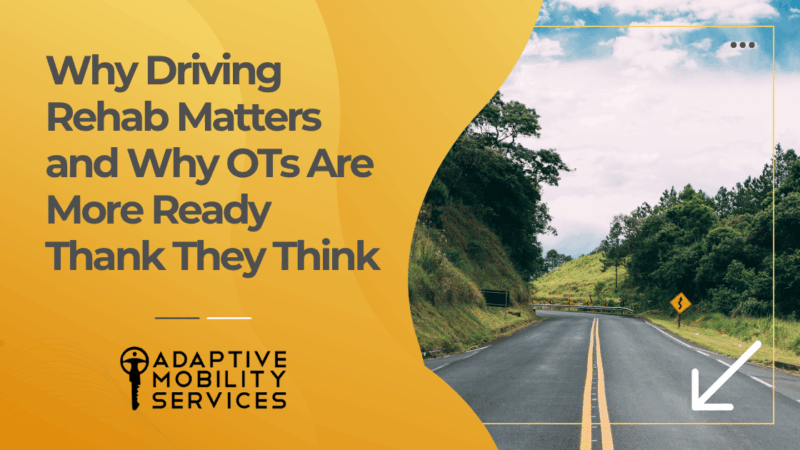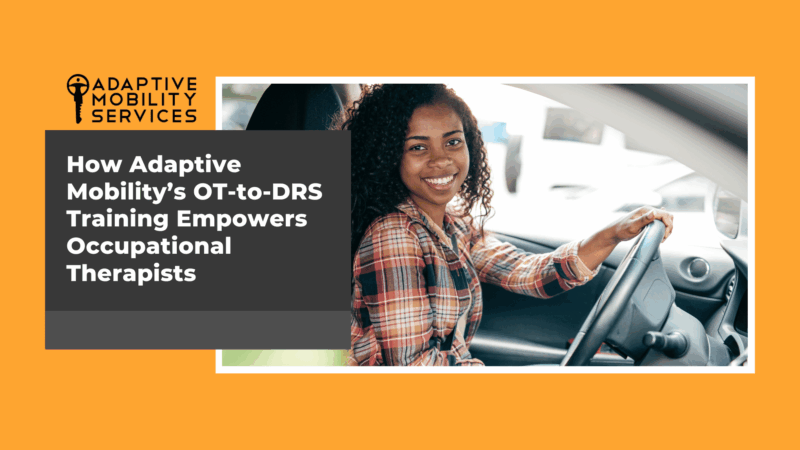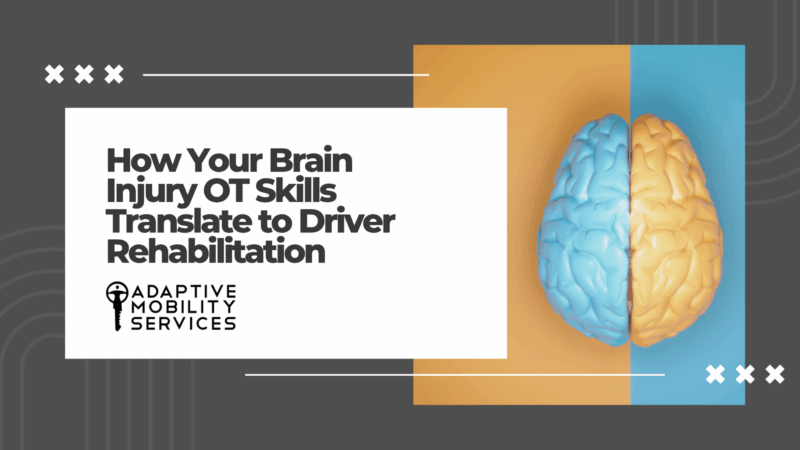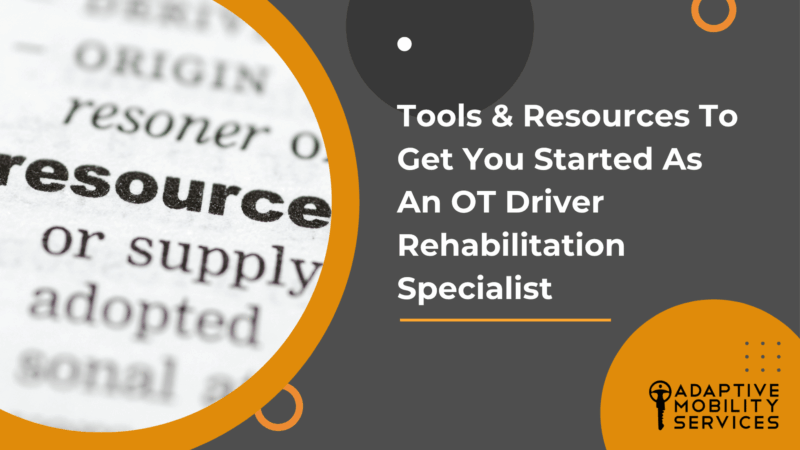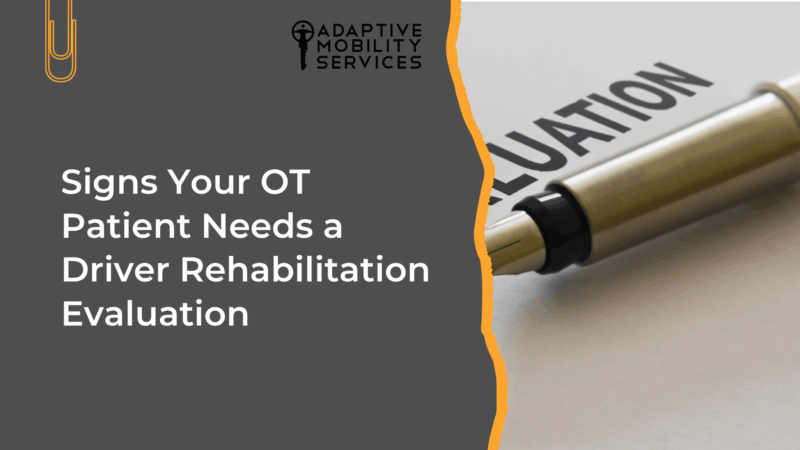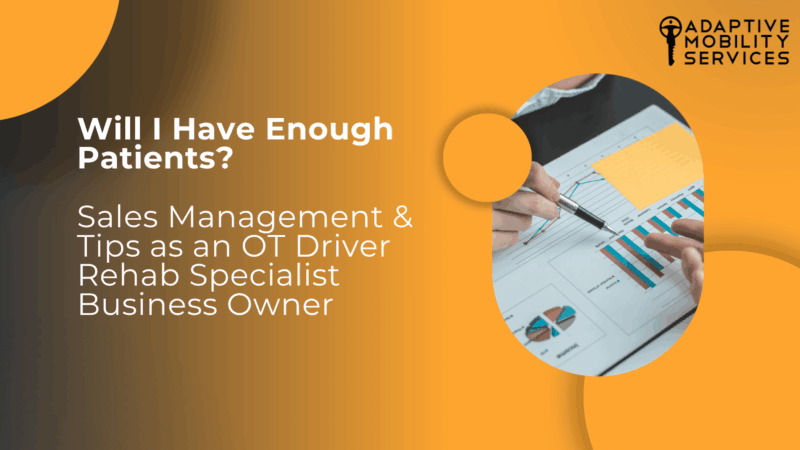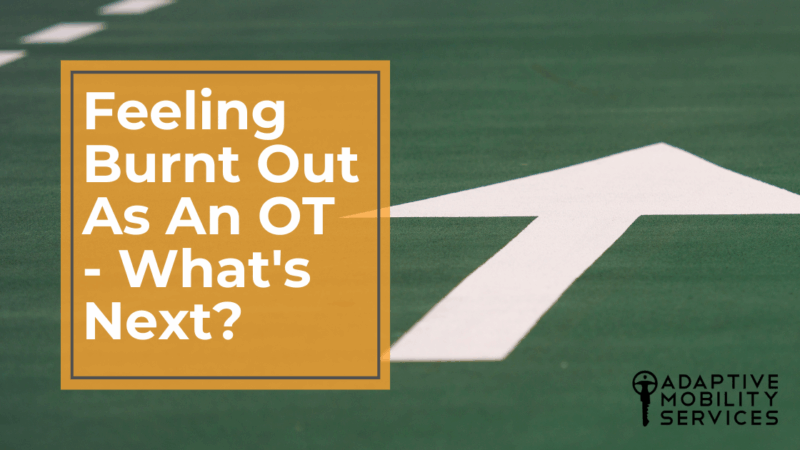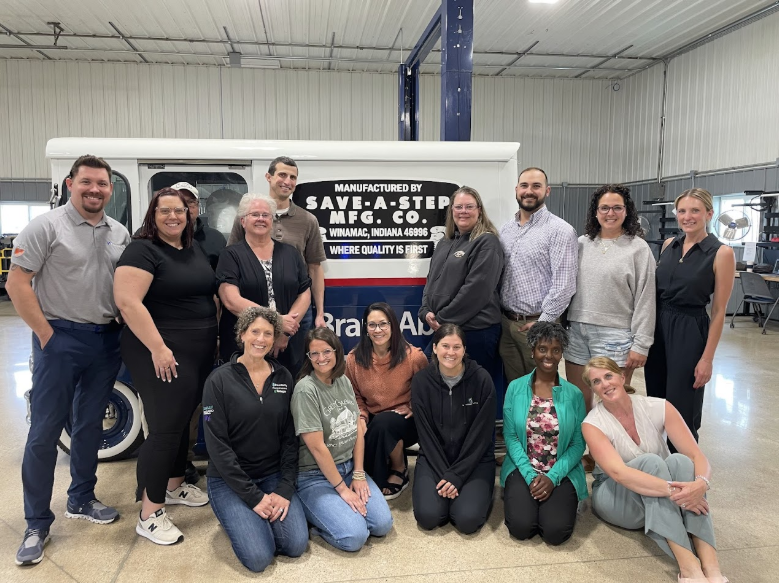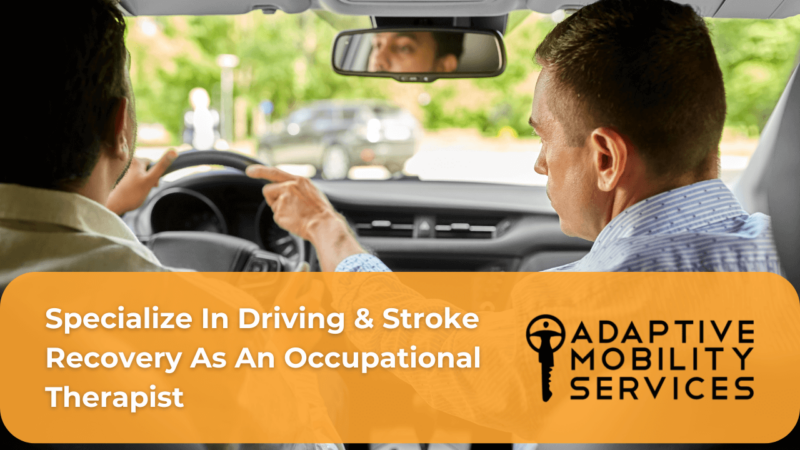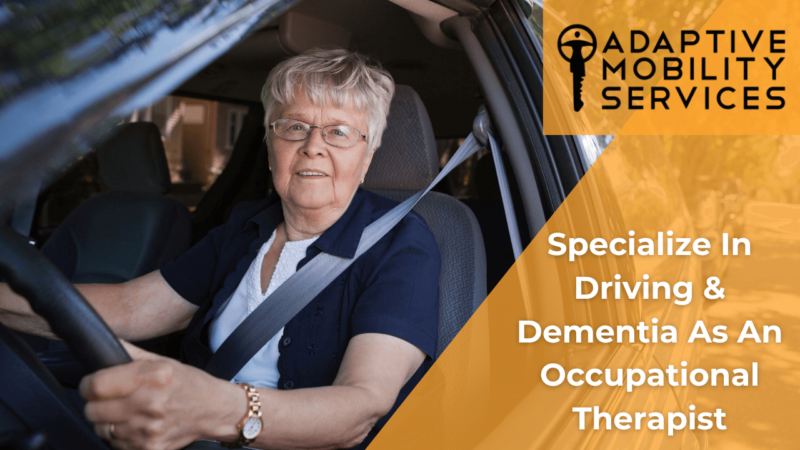How OTs Can Better Support Patients with Peripheral Neuropathy
Occupational therapists (OTs) know that peripheral neuropathy is a very common condition that can have a big impact on life in many ways, including affecting balance, coordination, and fine motor skills. For many patients, occupational therapy and peripheral neuropathy go hand-in-hand. Skilled occupational therapists use specific interventions to help individuals maintain their independence and quality…
Read MoreFull Transparency: Our Driver Rehabilitation Specialist Training is the Best
It is a well-known observation that occupational therapists (OTs) are smart and discerning professionals. They want clear facts before they decide to invest time and money into developing a new skill through OT continuing education. OTs deserve clarity and transparency when choosing AOTA-approved OT continuing education courses. The path to driver rehabilitation for occupational therapists…
Read MoreHow Occupational Therapists Can Help Families Transition from a Driver’s License to a Photo ID
Transitioning away from driving can be one of the most emotionally challenging shifts for older adults or individuals who have medical changes. As driver rehab specialists or OTs supporting older individuals, our first choice is usually to provide a driving risk assessment or comprehensive driver evaluation to make sure this independent act is preserved, but…
Read MoreLeveraging Feedback: How Adaptive Mobility’s Courses Transform Aspiring OT Driver Rehabilitation Specialists
Becoming a driver rehab specialist is more than just getting CEU hours. Adaptive Mobility Services believes it’s about gaining real confidence in practice and learning hands-on skills you can really use with your clients. Adaptive Mobility’s OT-to-DRS training courses are created by an OT for OTs, with the understanding that driving is one of the…
Read MoreOT Continuing Education Unit (CEU): Driver Rehabilitation
There is a growing need for driver rehabilitation specialists (DRSs) so that those with specific conditions can gain back a source of independence. Many occupational therapists (OTs) already treat the conditions that impact driving, just in a different way. Adaptive Mobility offers courses to not only help you become a DRS but also help you…
Read MoreWhy Driving Rehab Matters and Why OTs Are More Ready Than They Think
It is especially important that our roads remain safe for everyone in the community, including for those who may need the help of adaptive practices and equipment to drive. Many OTs already treat people to help them gain back independence. Many OTs already treat people to help them gain back independence and in doing so,…
Read MoreHow Adaptive Mobility’s OT-to-DRS Training Empowers Occupational Therapists
Occupational therapists (OTs) who are looking to expand their skills and make a bigger difference in people’s daily lives now have a unique pathway: Adaptive Mobility’s Driver Rehabilitation Specialist (DRS) training. The program is designed in three core parts and gives OTs with the skills to evaluate and modify driving practices for those with disabilities…
Read MoreHow Your Brain Injury OT Skills Translate to Driver Rehabilitation
For many people who have brain injuries, getting back behind the wheel is more than just a way to get around. It’s a sign of independence and freedom. As a Certified Brain Injury Specialist (CBIS), you already know how important it is for your patients to be independent and realize just how much driving can…
Read MoreTools & Resources To Get You Started As An OT Driver Rehabilitation Specialist
It’s exciting to become an Occupational Therapist Driver Rehabilitation Specialist (OT DRS). But it can be hard to figure out what tools, tests, and resources you need to get started. Having the right resources ensures you can provide safe and effective driver rehabilitation services. Here is a list of important things that will help you…
Read MoreAssessments Every OT DRS Should Master
If you are an Occupational Therapist stepping into Driver Rehabilitation, having a solid toolkit of assessments is essential. These tests help you determine whether a patient can drive safely overall and further determine who needs adaptive equipment or would benefit from more training. Below are key assessments that every OT DRS should master. 1. Visual…
Read MoreSigns Your OT Patient Needs a Driver Rehabilitation Evaluation
As an Occupational Therapist, you already know how critical independence is to the lives of your patients. One area that is often overlooked is safe driving, but this easily has a large impact. Being able to recognize when a patient may need a driver rehabilitation evaluation is not just a valuable skill. It is an…
Read MoreWill I Have Enough Patients? Sales Management & Tips as an OT Driver Rehab Specialist Business Owner
Becoming an Occupational Therapist Driver Rehabilitation Specialist (OT DRS) is exciting! However, it also comes with many important questions, especially if you’re considering starting your own business. You might be asking yourself: “Can I really make enough money?” “Will I have enough patients?” “Will people pay cash?” “Will my patients like me?” “Will my business…
Read MoreDo You Have To Be Certified To Be A Driver Rehabilitation Specialist?
The short answer is no. At the time this article is being written, most states do not require you to have a certification in order to operate a driver rehabilitation business and drive with patients. As occupational therapists, we know that when it comes to stepping into a new specialty related to our field, there…
Read MoreYour Higher Calling In Occupational Therapy
Occupational therapy is more than just a job. It’s a way to help others regain their freedom, confidence, and quality of life. However, a lot of OTs find that their regular jobs can be overly stressful, hard on their bodies, or not connected to the deeper purpose that brought them to the field in the…
Read MoreFeeling Burnt Out As An OT – What’s Next?
Many occupational therapists (OTs) experience burnout at some point in their careers. Between working long hours, with caseload after caseload, and the pressure of productivity, you feel like you aren’t fulfilling your calling as an OT. This career that once excited you is now leaving you physically exhausted, and there is never enough time to…
Read MoreHow To Start Your OT Driver Rehabilitation Business
Starting your own driver rehabilitation business allows you to help clients safely return to driving. It is also a rewarding, flexible career in occupational therapy (OT). Steps to starting your own OT driver rehabilitation business include: Working with Adaptive Mobility for ongoing education Understanding your state licensing laws Securing a specialized vehicle with adaptive equipment…
Read MoreHands-On, Minds-On: Specialists Explore Clinical Reasoning In Vehicle Modifications At BraunAbility
What happens when classroom learning meets cutting-edge mobility innovation? You get a truly unforgettable workshop experience like Clinical Reasoning for Complex Vehicle Modifications, held at the world-renowned BraunAbility headquarters in Winamac, Indiana. This wasn’t just another lecture or slideshow — it was a hands-on, minds-on deep dive into the essential considerations that make independent community…
Read MoreDriving & Multiple Sclerosis (MS)
Individuals with multiple sclerosis (MS) may experience various symptoms, such as tingling, numbness, muscle weakness, poor coordination, cramping or stiffness in the muscles, and paralysis. Other symptoms include unusual fatigue, changes in focus and attention, and blurred or double vision. Special equipment or accommodations may be needed for individuals with MS to retain their mobility…
Read MoreSpecialize In Driving & Stroke As An Occupational Therapist
OTs are particularly suited to assist stroke patients regain their confidence and independence behind the wheel are occupational therapists focused on driver rehabilitation. To navigate the results a stroke has on driving ability, OT driver rehabilitation specialists need a combination of professional knowledge, empathy, and ingenuity. From evaluating physical restrictions to correcting cognitive and visual…
Read MoreSpecialize In Driving & Dementia As An Occupational Therapist
As occupational therapists who focus on driver rehabilitation, we want to help people with dementia. Helping them and their families through the challenging and stressful journey of driving with dementia is invaluable. Many times the family contacts us because they are feeling stressed over their parent’s safety while driving. We are in a key position…
Read More
